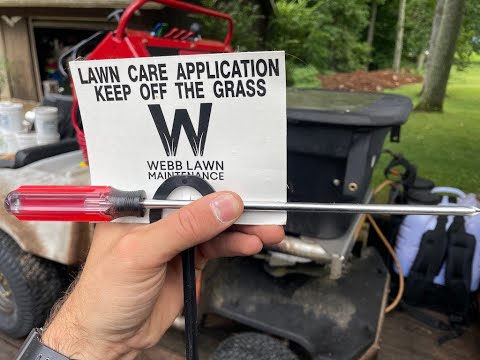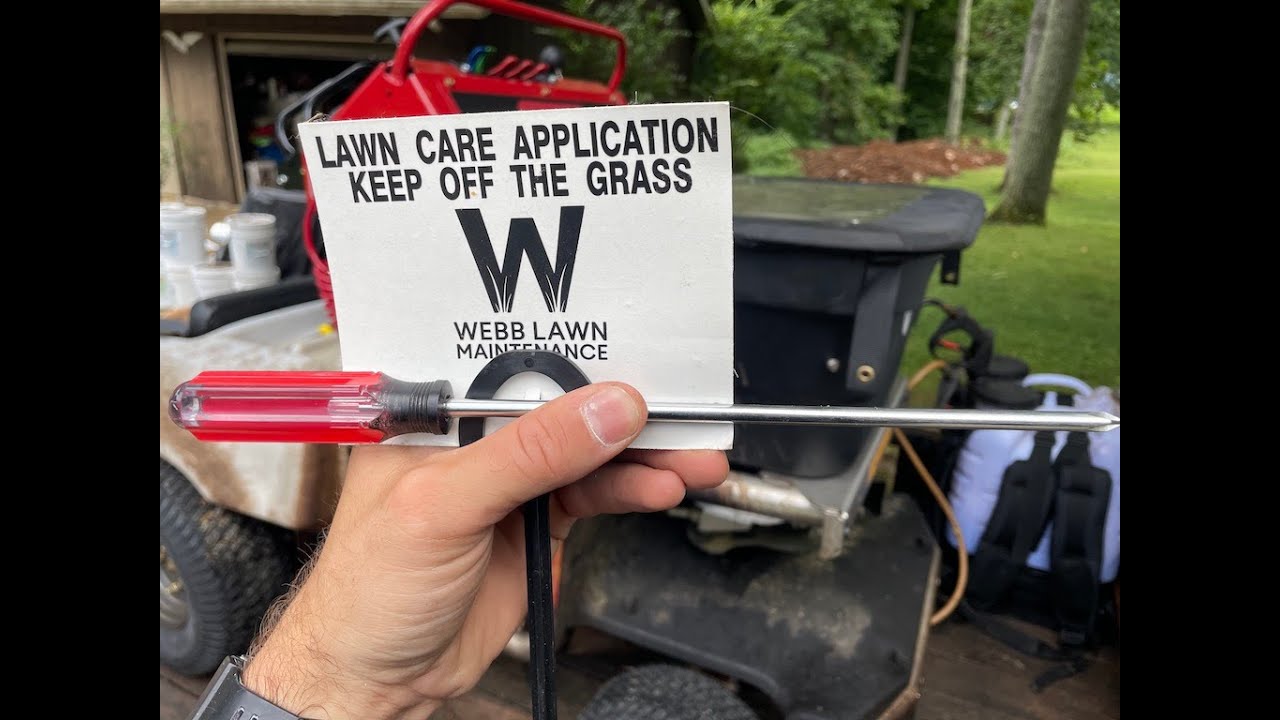Lawn companies have a secret concoction that transforms your dull yard into a lush paradise. Curious about what they spray on lawns? Prepare to be amazed! These experts utilize a unique blend of premium nutrients, carefully selected to nourish your grass with the essential elements it craves. Through their meticulous application techniques, they deliver a powerful boost to your lawn’s health and beauty. Revitalizing enzymes are gently sprayed, reinvigorating your grass and promoting strong root systems. The specialized formula also contains weed control agents, ensuring that pesky intruders are kept at bay, leaving your lawn with a pristine, weed-free appearance. Additionally, their pest repellent solution safeguards against unwanted critters, allowing you to enjoy your outdoor space without worry. With their expertise and cutting-edge products, these lawn companies offer a transformative experience for your yard, giving it the care and attention it deserves. Say goodbye to lackluster lawns and hello to a vibrant oasis that will be the envy of the neighborhood. Trust these professionals to work their magic and unleash the true potential of your outdoor sanctuary.

What Do Lawn Companies Spray on Lawns?
| Product Name | Active Ingredients | Purpose |
|---|---|---|
| Weed Control Herbicides | 2,4-D, Dicamba, Mecoprop-P | To control and eliminate broadleaf weeds such as dandelions, clover, and thistle. |
| Insecticides | Imidacloprid, Lambda-cyhalothrin, Permethrin | To target and eradicate common lawn pests like grubs, ants, fleas, and ticks. |
| Fungicides | Chlorothalonil, Propiconazole, Myclobutanil | To prevent and treat fungal diseases such as brown patch, dollar spot, and powdery mildew. |
| Fertilizers | Nitrogen, Phosphorus, Potassium (NPK) | To provide essential nutrients for healthy and lush grass growth. |
| Growth Regulators | Trinexapac-ethyl, Paclobutrazol | To slow down vertical grass growth, resulting in reduced mowing frequency and improved lawn density. |
| Soil Amendments | Humic Acid, Gypsum, Sulfur | To enhance soil structure, improve nutrient availability, and adjust pH levels for optimal grass growth. |
“The Ultimate Lawn Spray System: Transforming Any Size Lawn with This Setup!”
What Do Lawn Companies Spray on Lawns?
When it comes to maintaining a healthy and lush lawn, many homeowners turn to lawn companies for assistance. These professionals have the knowledge and expertise to tackle common lawn issues and keep your grass looking its best. One common question that homeowners often have is, “What do lawn companies spray on lawns?” In this article, we will explore the different types of treatments and substances that lawn companies use to promote healthy growth and combat common lawn problems.
Fertilizers
Fertilizers are a key component of lawn care and are frequently used by lawn companies to promote healthy growth. Fertilizers contain essential nutrients such as nitrogen, phosphorus, and potassium, which are necessary for the development of strong roots, vibrant foliage, and overall plant health. These nutrients are typically applied to the lawn in granular or liquid form, depending on the specific needs of the grass and soil. Lawn companies carefully select the appropriate fertilizer blend based on the current condition of the lawn and the desired results.
Weed Control
Weed control is another important aspect of lawn care that lawn companies address. Weeds can quickly take over a lawn, competing with grass for nutrients and water. To combat this issue, lawn companies may apply herbicides to eliminate or prevent the growth of weeds. Herbicides are formulated to target specific types of weeds while minimizing harm to desirable plants. These treatments can be applied as spot treatments for individual weeds or as a blanket application to prevent weed growth throughout the entire lawn.
Pest Control
Pest control is crucial for maintaining a healthy lawn, as pests can damage grass, trees, and shrubs. Lawn companies often use insecticides to control common pests such as grubs, ants, and mosquitoes. These insecticides are designed to kill or repel pests without harming beneficial insects or animals. Additionally, lawn companies may also use fungicides to prevent or treat fungal diseases that can impact the health and appearance of the lawn.
Lawn Disease Prevention
Lawn disease prevention is a proactive approach that lawn companies take to protect lawns from common diseases. Various factors such as weather conditions, improper watering, and poor soil health can make lawns susceptible to diseases like brown patch or dollar spot. To prevent these diseases from taking hold, lawn companies may apply fungicides or other treatments that strengthen the grass and create an unfavorable environment for disease development. Regular inspections and early detection are crucial in addressing potential disease issues before they become widespread.
Aeration and Overseeding
Aeration and overseeding are two techniques that lawn companies use to revitalize lawns and promote healthy growth. Aeration involves the removal of small plugs of soil from the lawn, which helps to alleviate compaction and improve oxygen and nutrient flow to the grassroots. Overseeding is the process of spreading new grass seed over the existing lawn to fill in thin or bare areas. These practices can help improve the overall health and appearance of the lawn, making it more resistant to common lawn problems.
In conclusion, lawn companies use a variety of treatments and substances to promote healthy growth, combat weeds and pests, prevent diseases, and revitalize lawns. Fertilizers provide essential nutrients for plant development, weed control treatments target unwanted plants, and pest control measures help to eliminate harmful insects. Additionally, lawn companies employ disease prevention techniques and use aeration and overseeding to ensure the overall health and vitality of the lawn. By understanding the different treatments utilized by lawn companies, homeowners can make informed decisions and work collaboratively with these professionals to achieve a beautiful and vibrant lawn.
List of Sprays Used by Lawn Companies
- Fertilizers
- Weed killers
- Insecticides
- Fungicides
- Herbicides
- Lime
- Growth regulators
- Iron supplements
- Nematode control treatments
- Soil conditioners

